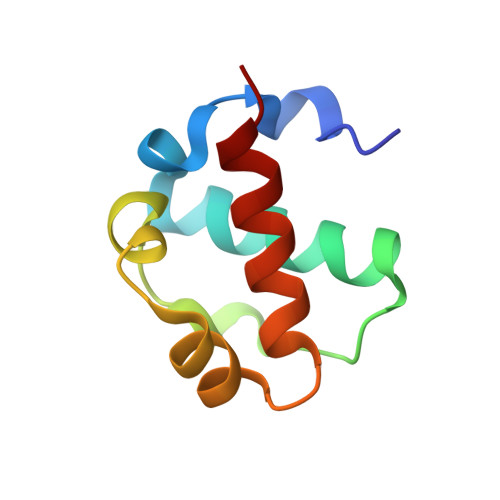Polymer-driven crystallization.
Nauli, S., Farr, S., Lee, Y.J., Kim, H.Y., Faham, S., Bowie, J.U.(2007) Protein Sci 16: 2542-2551
- PubMed: 17962407
- DOI: https://doi.org/10.1110/ps.073074207
- Primary Citation of Related Structures:
2QAR, 2QB0, 2QB1 - PubMed Abstract:
Obtaining well-diffracting crystals of macromolecules remains a significant barrier to structure determination. Here we propose and test a new approach to crystallization, in which the crystallization target is fused to a polymerizing protein module, so that polymer formation drives crystallization of the target. We test the approach using a polymerization module called 2TEL, which consists of two tandem sterile alpha motif (SAM) domains from the protein translocation Ets leukemia (TEL). The 2TEL module is engineered to polymerize as the pH is lowered, which allows the subtle modulation of polymerization needed for crystal formation. We show that the 2TEL module can drive the crystallization of 11 soluble proteins, including three that resisted prior crystallization attempts. In addition, the 2TEL module crystallizes in the presence of various detergents, suggesting that it might facilitate membrane protein crystallization. The crystal structures of two fusion proteins show that the TELSAM polymer is responsible for the majority of contacts in the crystal lattice. The results suggest that biological polymers could be designed as crystallization modules.
- UCLA-DOE Institute of Genomics and Proteomics, University of California, Los Angeles 90095-1570, USA.
Organizational Affiliation:
















